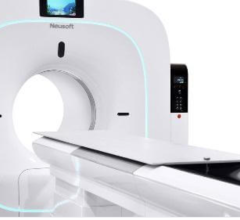
September 25, 2012 — A new survey reveals that cardiologists around the United States are seeing more patients than ever before, yet performing fewer advanced nuclear tests on those patients on average. The survey cites a change in the approach to the delivery of cardiovascular care, as well as continued concerns about economic conditions, as reasons for the decline.
Despite the decline, the findings confirm cardiologists are providing Americans with technology-based healthcare that is capable of delivering better diagnostic capabilities — an issue of increasing importance given the increasing number of older citizens requiring cardiac care.
MedAxiom, a national source of quantifiable information about the state of cardiology practices, jointly conducted the survey with the American Society of Nuclear Cardiology (ASNC). More than 110 practices, representing more than 2,000 cardiologists, took part in the survey, which was released at ASNC's annual conference in early September.
The survey reveals that in 2011, on average, cardiologists recorded more than 2,100 patient visits, up more than 29 percent since 2004. At the same time, however, they performed an average of 356 imaged stress studies last year, such as stress echo tests, single-photon emission computerized tomography (SPECT) tests or positron emission tomography (PET) tests to detect potential coronary problems such as blocked arteries or reduced pumping efficiency. That number remained, on average, largely flat over the same eight-year period, up only 2 percent.
Expressed as a ratio, however, the survey revealed that these tests were performed on one of every eleven cardiology patients last year, as opposed to one of every seven in 2008. "Put simply," the survey authors note, "physicians are seeing more patients and performing fewer studies on those patients." The study cited several reasons, such as:
- Increasing adoption of appropriate use criteria;
- Higher deductibles and co-pays for those with insurance;
- Increased awareness of radiation optimization;
- The use of provider-based billing by integrated cardiology practices; and
- An intermittent shortage of molybdenum-99, a key radioactive isotope in conducting the tests.
"In the face of increasing challenges, America's cardiologists have made a commitment of continuing to provide superior healthcare," said Jennifer Linville, CEO of MedAxiom. "At the same time, many recognize the advantages of nuclear cardiac imaging tests as an important tool to identify potential coronary disease among their patients. Balancing the two, cardiologists have committed to the selective and responsible administration of these tests in a way that contributes to the continued health of the people who depend on them."
"Nuclear cardiology imaging plays, and will continue to play, an important role diagnosing and treating heart disease." said John Mahmarian, M.D., president of ASNC. "Our doctors have been vigilant in prescribing the appropriate use of these tests as defined by our participation in the Choosing Wisely initiative. As healthcare evolves in the United States, we intend to continue clearly defining the patient-centered approach to cardiovascular imaging and optimizing the value received from it. Our goal is to continue to provide both quality and value to our patients."
For more information: www.medaxiom.com, www.asnc.org


 November 12, 2025
November 12, 2025 









